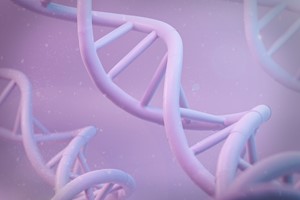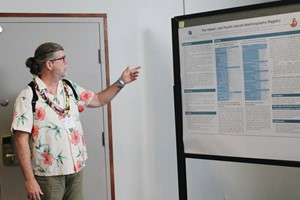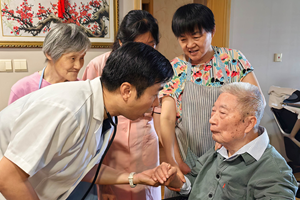A groundbreaking study led by UCLA Health Jonsson Comprehensive Cancer Center investigators has unveiled a promising new treatment approach for individuals with stage 2 or 3 HR-positive, HER2-negative early breast cancer. The study, published in the New England Journal of Medicine, demonstrates that combining a targeted therapy drug with hormone therapy significantly prolongs the duration of living without cancer recurrence.
The research, spearheaded by Dr. Dennis Slamon, Chair of Hematology-Oncology at the David Geffen School of Medicine at UCLA, and Director of Clinical and Translational Research at the UCLA Health Jonsson Comprehensive Cancer Center, is a significant advancement in the field of breast cancer treatment. The findings were also presented at the American Society of Clinical Oncology Annual Meeting in Chicago.
The study focused on incorporating ribociclib, a CDK4/6 inhibitor, into standard hormone therapy for women with early-stage breast cancer. This innovative combination not only improved invasive-free survival but also enhanced distant disease-free survival and recurrence-free survival rates.
Dr. Slamon emphasized the remarkable impact of the treatment, stating, "We found that adding ribociclib to the standard hormone therapy resulted in a relative reduction in the recurrence rate by as much as 25%. And that's huge for this group of patients, who make up 70% to 75% of breast cancer cases."
Traditionally, patients with HR-positive, HER2-negative breast cancer undergo surgery, sometimes followed by radiation and chemotherapy, and subsequently receive endocrine therapy for up to a decade to mitigate the risk of recurrence. Despite these treatments, there remains a significant risk of cancer recurrence, particularly for those with stage 2 or 3 disease.
To address this unmet need, researchers investigated the addition of ribociclib to endocrine therapy. Building on previous research demonstrating the efficacy of this combination in metastatic breast cancer, the team initiated the NATALEE clinical trial. The trial enrolled over 5,000 patients with early-stage breast cancer and randomly assigned them to receive ribociclib plus endocrine therapy or endocrine therapy alone.
The results of the trial were striking. At the three-year mark, the combination therapy significantly improved invasive disease-free survival rates compared to endocrine therapy alone. Additionally, distant disease-free survival and recurrence-free survival were markedly enhanced in the combination therapy group.
Importantly, the side effects of the combination therapy were manageable and comparable to those of endocrine therapy alone, with neutropenia, arthralgia, and liver-related events being the most common issues.
Dr. Slamon underscored the significance of these findings, stating, "Overall, the NATALEE trial supports ribociclib plus endocrine therapy as a new treatment option for a much larger population of patients with HR-positive, HER2-negative early breast cancer. These findings should change how we evaluate and treat patients."
The study, funded by Novartis and conducted in collaboration with Translational Research in Oncology (TRIO), marks a major advancement in breast cancer treatment, offering hope to thousands of individuals diagnosed with this prevalent form of cancer. As researchers continue to explore innovative therapeutic approaches, the future holds promise for further improving outcomes and enhancing the quality of life for breast cancer patients worldwide.
University of California - Los Angeles Health Sciences













